Why Clara Should Die
Guest contributor Ruth Long & Joshua Yetman state their reasoning for the other side of the argument.
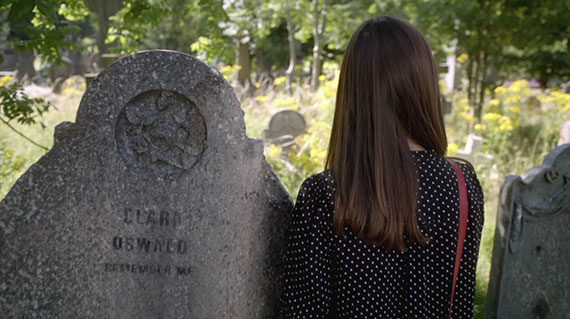
“Run you clever boy… and remember me.”
With the confirmation of Jenna Coleman’s departure from Doctor Who in Series 9, speculation has turned not just to when, but how the character of Clara Oswald will leave the show. Accompanying this there has been much discussion on the possibility that, for the first time in years, a long-term companion may be permanently killed-off. This week Sam White and Alex King put forward an excellent piece on why they thought the Impossible Girl should live when she finally says farewell. See the links below:
Here, Joshua Yetman and I (Ruth) would like to offer a counter perspective: We believe that the ending that would best do her justice would be, as grim as it sounds, death.
Before we continue, we want to stress that both of us are absolutely huge fans of Clara; she’s our favourite companion and a character that we love to pieces. Because of this we want her to have the best finale possible: one that not only delivers emotionally but also respects everything that the character is and represents. Therefore (after much consideration) we’ve jointly reached the conclusion that though death is not the only answer, in this case, it may well be the best one.
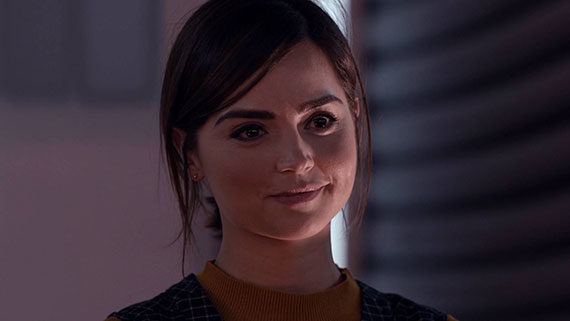
To say that Clara Oswald has had a complex journey as a companion would be an understatement. She has grown and changed dramatically, as has her relationship with the Doctor. We’ve seen her progress from stay-at-home nanny with dreams of adventure to time-travelling schoolteacher to stand-in Doctor and reckless thrill seeker. In that time she’s been splintered across all of time and space, walked the fields of Trenzalore and stood on Gallifrey. She saved the moon, was trapped inside a Dalek (more than once), lost the man she loved (also more than once), saw the end of the universe, witnessed the entire lifecycle of the earth and quite literally went to hell.
Clara’s fantastical experiences have shaped her character, but they’ve also begun to gradually sever her ties to Earth and normality. As we started to see last year and especially in this series, she’s becoming more foolhardy, more alien and more like her best friend than ever before. Where Amy and Rory learned to come to terms with ‘ordinary’ life apart from the Doctor, Clara has moved in the opposite direction. The woman who was once so grounded by her home responsibilities has now become addicted to the TARDIS lifestyle: Indeed, with the catalyst of Danny’s death (the person who anchored her), it is all that she really has, and wants, in her life. This is dangerous and unexplored territory that has never been traversed to this extent before with a companion, and it certainly doesn’t entertain the prospect of a happily ever after.
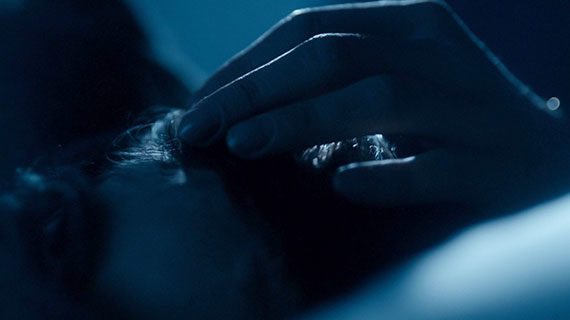
Furthermore, Clara has a profound, irrevocable connection to the Doctor himself. They’ve been through unbelievable ups and devastating downs: through curiosity, love, loss, sacrifice, doubt, conflict, betrayal, forgiveness and reconciliation. It’s a dynamic that has transcended regenerations and reached deep into the past, present and future; to the Doctor’s very beginning. But after all that they’ve weathered together the duo have not only reached a point of understanding and harmony, but one of co-dependency. Without Clara, the Doctor is a man without hope; without the Doctor, Clara is a woman with nothing. One cannot do without the other, which begs the question: What would it take to pull them apart?
Both of us feel that for these reasons, it would be contrary to Clara’s character arc and a disservice to her and the Doctor’s intricate relationship if she was to leave him on her own terms; particularly if that meant returning to the ‘boring world’ that she no longer really belongs to. Add her growing disregard for her own mortality, the ominous foreshadowing this series and the promise of dire consequences, and there is only one way that we can truly see it ending – incontrovertible, uncompromising, death.
But not just any old death. We’re inclined towards a particular kind of death for this character, which we will now explain.
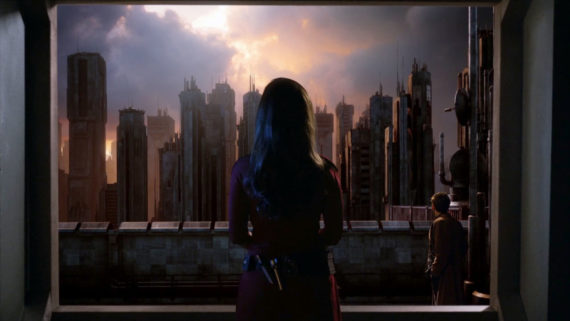
When Jenna Coleman debuted on our screens all the way back in 2012, she was, of course, playing a different character to the one we’re accustomed to today. The Series 7 plot arc presented us with two (and implied many more) Clara echoes sacrificing themselves for the Doctor throughout time and space, in order to counteract the malicious influence of the Great Intelligence. Clara was born to save the Doctor, and she splintered herself throughout time and space to protect her friend.
The Clara echo arc has not been touched upon since its conclusion. Now, in Clara’s final year, it could make a powerful and thematic return. If Clara was to finally, decisively die saving the Doctor’s life one last time, we think it could make a wonderful semblance to her Series 7 echoes who also died saving him. It would bookend her entire time on the show, and she would depart our screens in the same way that she entered them all those years ago; bringing her story full circle. It would evoke such powerful imagery as well, concluding her epic character story as the woman who has always been looking out for and caring for the Doctor, her best friend. Plus, it would be nice to return to some of Clara’s Series 7 material, which has been mostly overlooked in the wake of the plot developments seen in Series 8; this could unify the slightly disparate segments of her character story, which would be a nice touch in Clara’s ultimate series.
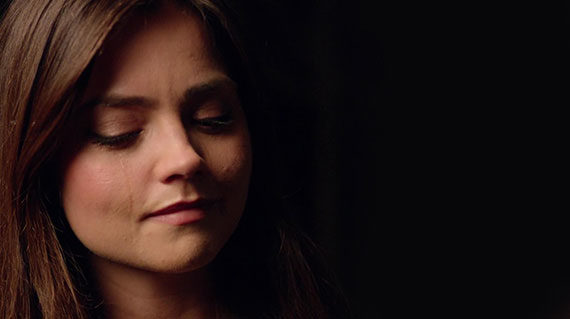
But it’s not just out of a desire to bookend her tenure that we advocate this exit. As we have said before, death feels like the natural consequence of Clara’s entire story told across all three series. It has developed as one fraught with difficulties and dangerous parallels to the Doctor: She has been emulating his behaviour progressively, so much so that she has essentially become her own version of him. What is the ultimate characteristic of the Doctor, but the willingness to sacrifice himself for others?
Thus, if Series 9 were to cap off with Clara giving her life to save her best friend (something she’d do even if the aforementioned arc wasn’t present because, quite simply, she cares about the Doctor) it would play into everything her character has become. And, to be honest, it’s probably the death Clara would personally favour. After losing Danny, she seemed most traumatized by how “boring” and “ordinary” it was. Obviously, she’d prefer not to die, but if presented with the choice she would undoubtedly go for an explosive, dramatic option, as that fits with the attitude and ideals that Clara’s come to adopt (not to mention her desire to be something greater than herself – which she has held from the beginning). Of course, a low-key death or exit in general may incur additional heartbreak as a result of this (due to the fact it would represent such a meteoric fall for a character with such immense influence), but, even then, it’s not something we personally feel would suit her journey all that well. Sometimes immense characters deserve an immense send-off.
Some people might argue that this disregards Danny’s death, as he valiantly sacrificed himself in ‘Death in Heaven’ so that she might live (and the rest of the world too – I don’t buy that line in ‘Last Christmas’). Well, if Clara did likewise for the Doctor, she’d be mirroring Danny’s actions; even down to saving someone who is imperative to the universe (which Clara is, in many ways). It’d be positively selfish of Danny, in whatever domain he now resides, to feel disrespected for Clara making his very same decision, but on a much larger scale. Danny gave himself so that she could live, and give her control over her fate, which had been manipulated by Missy for who knows how long. It’s safe to say she’s lived an extremely good life, and how natural would it be for Clara – the control freak she’s always been – to be the master of her own death and exact it as she sees fit?
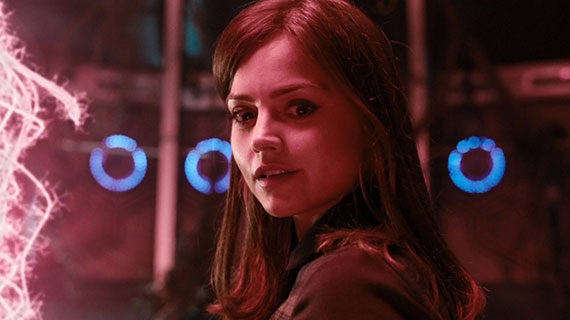
And, to cap this all off, if she died uttering the words “Run you clever boy…and remember me”, it could create nothing short of emotionally devastating television, and further emphasize the aforementioned bookending effect. Emotional devastation is something we personally want with Clara’s departure, seeing as we’ve always felt her story could only end one way: catastrophically. As discussed earlier, Clara has become more reckless, rash, and is effectively the companion equivalent of an adrenaline junkie at this point. It truly can’t end well for her, and, personally, we want to be heartbroken. We want to see Twelve break down in tears, temporarily lose it at the loss of his best friend, visiting a random echo of Clara somewhere in the universe just so he can see her face again, and talk wistfully about his lost best friend. Death is an underrated medium for character departure (at least in this fandom), and death doesn’t always have to be for shock value or “to shake things up” – it can make stunning, unforgettably powerful television when done right, and, providing it’s built up to appropriately by our superb modern writing team, it would be done right.
It would be especially effective due to the fact the revival has yet to show a proper, final, definitive death for a main companion. Amy and Rory survived and lived out full lives in the past, River’s consciousness was implanted into a computer, and Rose and Donna stayed very much alive despite the prophecies / pre-credits monologues stating that they would perish. To have a proper, final, definitive death for the Impossible Girl, the girl with so many lives, it just fits so well, and would stand strong against her other pseudo-exits to date.

This leads us nicely on to the previous occasions in which Clara nearly left the TARDIS for good. For narrative purposes in addition to real-life circumstances, Miss Oswald has come close to saying farewell to the Doctor multiple times in various different ways. Their altercation in ‘Kill the Moon’, parting on mutual lies in ‘Death in Heaven’ and an old Clara that lived a full life (albeit alone) in ‘Last Christmas’. One could even argue that (within the context of the story) her entering the Doctor’s timestream in ‘The Name of the Doctor’ was a potential instance where she could have left (it was supposed to kill her after all).
Of course none of these were genuine exits, with the two always ultimately managing to reunite in spite of them. However, they do present a situation where there’s a risk of her actual goodbye being lessened by the fact that we’ve seen her nearly go before. It poses the threat of repetition should it be too similar to what we’ve seen previously. Thus, whatever happens in her final episode must not only differ from her past pseudo-exits (each of which were excellent in their own right), but also surpass them in terms of quality, scale and emotional impact. Now it is worth mentioning that Clara has technically also ‘died’ on-screen before; or at the very least, two of her echoes have (you could arguably throw in the Dalek non-extermination in ‘The Magician’s Apprentice’ as well). As such, if Clara prime was to die it would likewise need to be entirely distinct (and superior) in that respect.
Also, we need to consider how death would fit into the context of Series 9, which it does very well through a remarkably painful contrast. Throughout this series, we’ve seen the lengths the Doctor would go to save people from death. He went back in time and inadvertently created a bootstrap paradox to save Clara, he created a temporal ‘tidal wave’ by repudiating time itself and saving the Viking girl Ashildr, and he gave an agonizingly emotional speech perhaps 15 times to prevent a war between Zygons and Humans. The Doctor has saved so much life this series that it’d be heartbreaking, and make for a very powerful contrast, to see him fail to save the life most important to him. A retaliation from time itself for his impudence. That would tie wonderfully into the themes of Series 9.
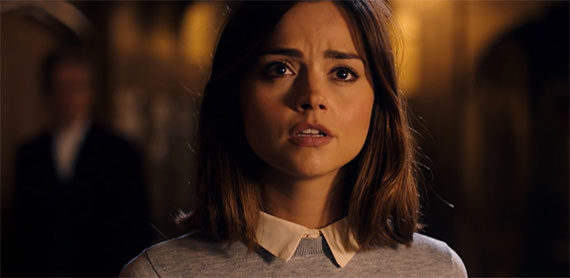
Ultimately though, we must ask the most important question: Would death do Clara justice? We’ve argued how it would serve the trajectory of her character arc, compliment her history on the show and stand apart from companion swansongs of the past – including her own. It is imperative, however, to stress that such a bold and risky direction (for Doctor Who) would live, or die, on how it was handled. It would be in very poor form, for example, if she were to be killed-off purely to set the stage for the Doctor’s anguish. Her denouement needs to honour to who she is, not become a detriment that sees her as a mere tool for the plot.
The character’s relationship with mortality is complex to say the least, but her relationship with stories is even more so. Clara Oswald has always been the author of her own grand narrative: one that begins with a leaf and sails on the winds of time. It dances in the stars, it whispers through cracks in the universe, it dives into the fires of volcanoes and carries on the wings of a raven. It is full of twists and turns: full of romance and adventure and comedy and tragedy. It is led by heroes and non-heroes and heroes who think they’re not heroes; which are often one and the same. And now, we find ourselves approaching its climax.
Through this central theme, there is now the opportunity for Clara to write her own ending. This is why she must not be stripped of her agency: left by the Doctor or killed as part of someone else’s agenda. Her fate should not be bound by anyone but herself. Clara has already gained immortality in a way that goes beyond the magic of regeneration or the limitless healing of Ashildr; death cannot extinguish her, even if her life comes to a close. If stories can make us fly, then the Impossible Girl will soar: because there is one thing that these stories can never truly do: die.








